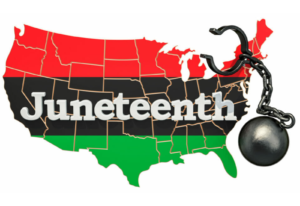Last November, I wrote this post about a recent case filed by the Securities and Exchange Commission naming cannabis industry players for an alleged stock promotion scheme (or, as some call them, anti-touting violations). Last month, the primary individual defendant, Jonathan Mikula, filed a Motion to Dismiss the claims against him. The other individual defendant, Christian Fernandez, filed his own Motion to Dismiss shortly after.
The case is one to watch given its potential impact on the cannabis industry at large – especially in light of Mikula’s pending Motion to Dismiss – which argues, in part, that the SEC must prove a specific scienter requirement to successfully plead their securities violation claims against him.
What is a stock promotion scheme?
To recap, stock promotion schemes involve scenarios where public companies hire promoters or marketing firms to generate publicity for their stocks, and those promoters or marketing firms publish articles boosting those stocks – while failing to publicly disclose that they’re receiving payments from the companies. Those writers will post seemingly unbiased, glowing articles or reviews about the companies when they’re really nothing more than paid advertisements. Sometimes, the number of articles can get into the hundreds. And sometimes, the articles even go so far as to state the writers had not been compensated by the companies they’re writing about, when they in fact were.
The SEC v. Mikula, et al. Complaint
The Complaint at issue alleges Mikula unlawfully promoted the securities of four issuers without disclosing the fact that he was paid for those promotions. As one example – one of his articles stated, on behalf of Elegance Brands, that its CBD product, Gorilla Hemp, was retailing for $3.95 per can and could ultimately yield Elegance Brands a 2,630% price increase. It also claimed distribution agreements were in place which could potentially increase Elegance Brands’ share price by 9,900% in five years. He presented his “recommendations” to therefore invest in Elegance Brands as unbiased and not paid for, even though he actually was compensated via cash and “extravagant expenses.”
Mikula’s associates, which include Fernandez, were also charged for acting as middlemen. The SEC alleged they arranged to receive a percentage of investor funds under the guise of “consulting agreements” with the companies.
The Defendants’ positions
Between the filing of the Complaint and December 2022, most of the parties agreed to settle with the SEC by agreeing to permanent injunctions (meaning, they agreed to a laundry list of things they can never do again, starting immediately). Monetary penalties ranged from the $100,000s to the $700,000s. And, the individuals agreed to various bans from serving as an officer and director of any company.
However, Mikula and Fernandez chose to file Motions to Dismiss instead. In broad strokes, Mikula’s Motion to Dismiss is interesting – it argues the SEC failed to plead all facts required by the statute to allege an “anti-touting” violation. Mikula’s position is that this failure impacts all five claims for relief against Mikula:
- Violations of Section 10(b) of the Exchange Act and Rule 10b-5(a) and (c)
- Violations of Section 10(b) of the Exchange Act and Rule 10b-5(b)
- Violations of Section 17(a)(1) and (3) of the Securities Act
- Violations of Section 17(a)(2) of the Securities Act
- Violations of Section 17(b) of the Securities Act
He cites Section 17(b) of the Securities Act (15 U.S.C. section 77q(b)), which provides:
“It shall be unlawful for any person, … to publish, give publicity to, or circulate any notice, circular, advertisement, newspaper, article, letter, investment service, or communication which, … describes such security for a consideration received or to be received, directly or indirectly, from an issuer, underwriter, or dealer, without fully disclosing the receipt …”
Mikula’s position is that the SEC has done nothing more than quote buzzwords of the statute as a legal conclusion – it wholly fails to factually allege that Mikula published articles about the stocks “for a consideration received” from the issuers. His position is that receiving payment, even from an issuer, isn’t enough – there must be a causal element demonstrating that the article’s publishing occurred “for the consideration received.” Here, the SEC’s allegations within the Complaint do not specifically allege that the issuers’ money caused Mikula’s publication.
Should scienter be required?
Of course, this essentially amounts to a position that scienter should be pleaded as an additional element of anti-touting allegations. Mikula’s Motion to Dismiss notes the Supreme Court and Ninth Circuit have not ruled on the exact question of whether the SEC must plead and prove scienter to state a violation of Section 17(b). However, relevant case law certainly has impliedly inserted an element of fraudulent intent in prior situations. And, Mikula argues that the core conduct is analogous to the federal bribery criminal statute where the Supreme Court implied a requirement that there be a showing that a defendant acted “corruptly.”
Secondarily, his Motion to Dismiss also generally argues the SEC failed to plead their fraud claims with particularity, and the SEC proceeded in an improper venue (or the case should be transferred to a more convenient forum for the remaining defendants). Fernandez’s Motion to Dismiss makes similar claims.
Conclusion
While the SEC’s pursuit of stock promotion schemes is no new development, their attention to the cannabis industry makes sense in light of the fact that securities violations (and associated lawsuits) have abounded for years, and the public is increasingly interested in both consuming and investing in the space. This case is certainly one to be watched – both as a potential cautionary tale and as potentially precedent-setting in securities law.
In terms of being a cautionary tale, this case serves as a good reminder that the SEC considers stock promotion schemes to be a huge threat to the investing public. In 2017, Melissa Hodgman, then Associate Director of the SEC’s Division of Enforcement, was quoted as stating “Our markets cannot operate fairly when there are deliberate efforts to reach prospective investors with positive articles about a stock while hiding that the companies paid for those articles.” To ensure that purportedly objective investment information is what it claims to be, the SEC has historically settled for high amounts of disgorgement or penalties, as well as injunctive relief.
In terms of being potentially precedent-setting in securities law, Mikula’s position that the SEC must specifically plead a scienter requirement is not squarely addressed by the courts. He is asking the Court to demand the SEC prove he acted with the requisite scienter by proving he had a certain fraudulent state of mind, i.e., intending to mislead the investing public. While it’s up for debate on whether this should be required (especially in order to get past just the pleadings stage), plenty of law in analogous situations do require a high bar in demonstrating scienter to avoid early dismissal (such as fraudulently inducing a shareholder to buy or retain shares or insider trading).
If the Court is sympathetic to Mikula’s position, it may make for significant case law that may make the SEC’s job of pursuing stock promotion schemers much more difficult. This would essentially create an additional factor the SEC to prove – scienter – which is often a fact-intensive inquiry that is difficult to establish, especially in advance of discovery.

























